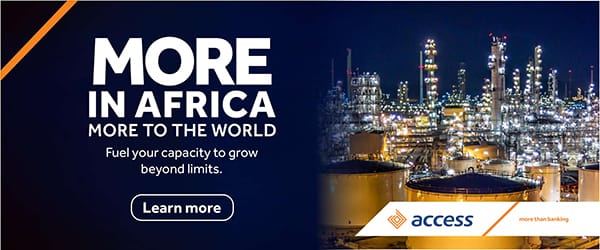Dark Clouds Gather as China Evergrande Concerns Irk Global Markets

Dark Clouds Gather as China Evergrande Concerns Irk Global Markets
Growing fears of China Evergrande defaulting rattled global markets on Monday as investors worried about the potential impact on the wider economy dumped Chinese property stocks and sought refuge in safe-haven assets.
Shares in Evergrande, which has been scrambling to raise funds to pay its many lenders, suppliers and investors, closed down 10.2% at HK$2.28 on Monday, after earlier plummeting 19% to its weakest level since May 2010.
Regulators have warned that its $305 billion of liabilities could spark broader risks to China’s financial system if its debts are not stabilised. World shares skidded and the dollar firmed as investors fretted about the spillover risk to the global economy. U.S. stocks were sharply lower, with the S&P 500 down nearly 2%.
A major test comes this week, with Evergrande due to pay $83.5 million in interest relating to its March 2022 bond on Thursday. It has another $47.5 million payment due on Sept. 29 for March 2024 notes.
Both bonds would default if Evergrande fails to settle the interest within 30 days of the scheduled payment dates. In any default scenario, Evergrande, teetering between a messy meltdown, a managed collapse or the less likely prospect of a bailout by Beijing, will need to restructure the bonds, but analysts expect a low recovery ratio for investors.
Evergrande’s troubles also pressured the broader property sector, with Hong Kong-listed shares of small-sized Chinese developer Sinic Holdings down 87%, wiping $1.5 billion off its market value before trading was suspended.
Evergrande executives are working to salvage its business prospects, including by starting to repay investors in its wealth management products with real estate.
“(Evergrande’s) stock will continue to fall, because there’s not yet a solution that appears to be helping the company to ease its liquidity stress, and there are still so many uncertainties about what the company will do in case of a restructuring,” Kington Lin, managing director of Asset Management Department at Canfield Securities Limited, said.
Lin said Evergrande’s shares could fall to below HK$1 if it is forced to sell most of its assets in a restructuring.
“As of right now, I don’t see any systemic risk for the global economy from the Evergrande situation, but there doesn’t need to be any systemic risk in order for markets to be affected,” David Bahnsen, chief investment officer, The Bahnsen Group, a wealth management firm based in Newport Beach, Calif, said in emailed commentary.
There was some confidence, however, that the situation would be contained.
“Beijing has demonstrated in recent years that it is fully able and willing to step in to stem widespread contagion when major financial/corporate institutions fail,” Alvin Tan, FX Strategist at RBC Capital Markets, said in a research note.
DOLLAR BONDS
Despite mounting worries about the future of what was once the country’s top-selling property developer, analysts, however, have played down comparisons to the 2008 collapse of U.S. investment bank Lehman Brothers.
“First, the dollar bonds will likely get restructured, but most of the debt is in global mutual funds, ETFs, and some Chinese companies and not banks or other important financial institutions,” said LPL Financials’ Ryan Detrick.
“Lehman Brothers was held on nearly all other financial institution’s books,” he said. “Secondly, we think the odds do favor the Chinese communist government will get involved should there be a default.”
Policymakers in China have been telling Evergrande’s major lenders to extend interest payments or rollover loans, but market watchers are largely of the view that a direct bailout from the government is unlikely.
The People’s Bank of China, its central bank, and the nation’s banking watchdog summoned Evergrande’s executives in August in a rare move and warned that it needed to reduce its debt risks and prioritise stability.
Trading of the company’s bonds underscores just how dramatically investor expectations of its prospects have deteriorated this year.
The 8.25% March 2022 dollar bond was traded at 29.156 cents on Monday, yielding over 500%, compared to 13.7% at the start of year. The 9.5% March 2024 bond was at 26.4 cents, yielding over 80%, compared to 14.6% at the start of 2021.
PROPERTY PUNISHED
Goldman Sachs said last week that because Evergrande has dollar bonds issued by both the parent and a special purpose vehicle, recoveries in a potential restructuring could differ between the two sets of bonds, and the process may be prolonged.
Investors, meanwhile, are increasingly worried about the contagion risk, mainly in the debt-laden Chinese property sector, which along with the yuan came under pressure on Monday.
The yuan fell to a three-week low of 6.4831 per dollar in offshore trade.
Hong Kong-listed Sinic, which saw massive selling pressure, has nearly $700 million in offshore debts maturing before June 2022, including $246 million due in a month — a bond that has tumbled to around 89 cents on the dollar.
Sinic has a junk rating from Fitch, which downgraded its outlook to negative on Friday.
Other property stocks such as Sunac, China’s No.4 property developer, tumbled 10.5%, while state-backed Greentown China shed around 6.7%.
Guangzhou R&F Properties Co said on Monday it was raising as much as $2.5 billion by borrowing from major shareholders and selling a subsidiary, highlighting the scramble for cash as distress signals spread in the sector.
Behind the Story
One of China’s largest lenders, Evergrande Group, is facing billions of debt with the threat of default. The crisis is sending shockwaves through global financial markets, including in the U.S., where the company is being compared to Lehman Brothers, whose implosion in September 2008 sparked the Great Financial Crisis.
EVERGRANDE GROUP
Evergrande is one of China’s leading lenders for everything from property to autos. The company has 2.3 trillion Chinese yuan in assets, which equates to about $355 billion in USD, according to the lender, which employs 200,000 workers.
By 2022, Evergrande expects to reach 3 trillion yuan in total assets, 1 trillion yuan of annual sales and 150 billion yuan of annual profits and taxes to become “one of the world’s top 100 companies.”
FACING DEFAULT ON BILLIONS
Rating agencies say Evergrande Group appears unlikely to be able to repay all of the 572 billion yuan ($89 billion) it owes banks and other bondholders, as reported by the Associated Press, which also noted Beijing is likely to step in to prevent systemic damage.
“I suspect the Chinese government is on top of this, and I don’t doubt they will deal with it severely, but I don’t think it will have the global effects the market is suggesting this morning,” said Carlyle Group co-founder David Rubenstein during an appearance Monday on “Mornings With Maria.”
One U.S. investor in China tells FOX Business “just about every bank in China has exposure to the company,” which explains the heightened contagion fears.
According to Factset data, BlackRock has some holdings in Evergrande across several units, while Goldman Sachs, JPMorgan and JPMorgan have small, fractional holdings. “I don’t think the major US banks are on the hook for very much money,” Rubenstein noted.
EVERGRANDE’S DEFENSE, MANAGING CRISIS
As the lender’s crisis continues to unfold, it has attempted to calm investor fears.
“The recent online remarks about Evergrande’s bankruptcy and reorganization are completely untrue,” the company said Sept. 13. “The company has indeed encountered unprecedented difficulties, but the company resolutely fulfils its corporate responsibility, goes all out to resume work and production, guarantee the delivery of buildings, try all means to resume normal operations, and fully protect the legitimate rights and interests of customers”
EVERGRANDE CHAIRMAN & STOCK
Xu Jiayin, also known as Hui Ka Yan, is among China’s richest people with a net worth of over $10 billion, according to Forbes. Xu took the lender public on the Hong Kong Stock Exchange in 2009.
According to a company bio: “61 years old, Chairman of the Board of Directors of the Group and Chairman of the Real Estate Group, Professor Xu coordinates the overall development strategy of the Group. He has more than 37 years of experience in real estate investment, real estate development and corporate management.
Professor Xu has been a professor of management at Wuhan University of Science and Technology since 2003 and was hired as a doctoral supervisor of the school in 2010.”
Dark Clouds Gather as China Evergrande Concerns Irk Global Markets












